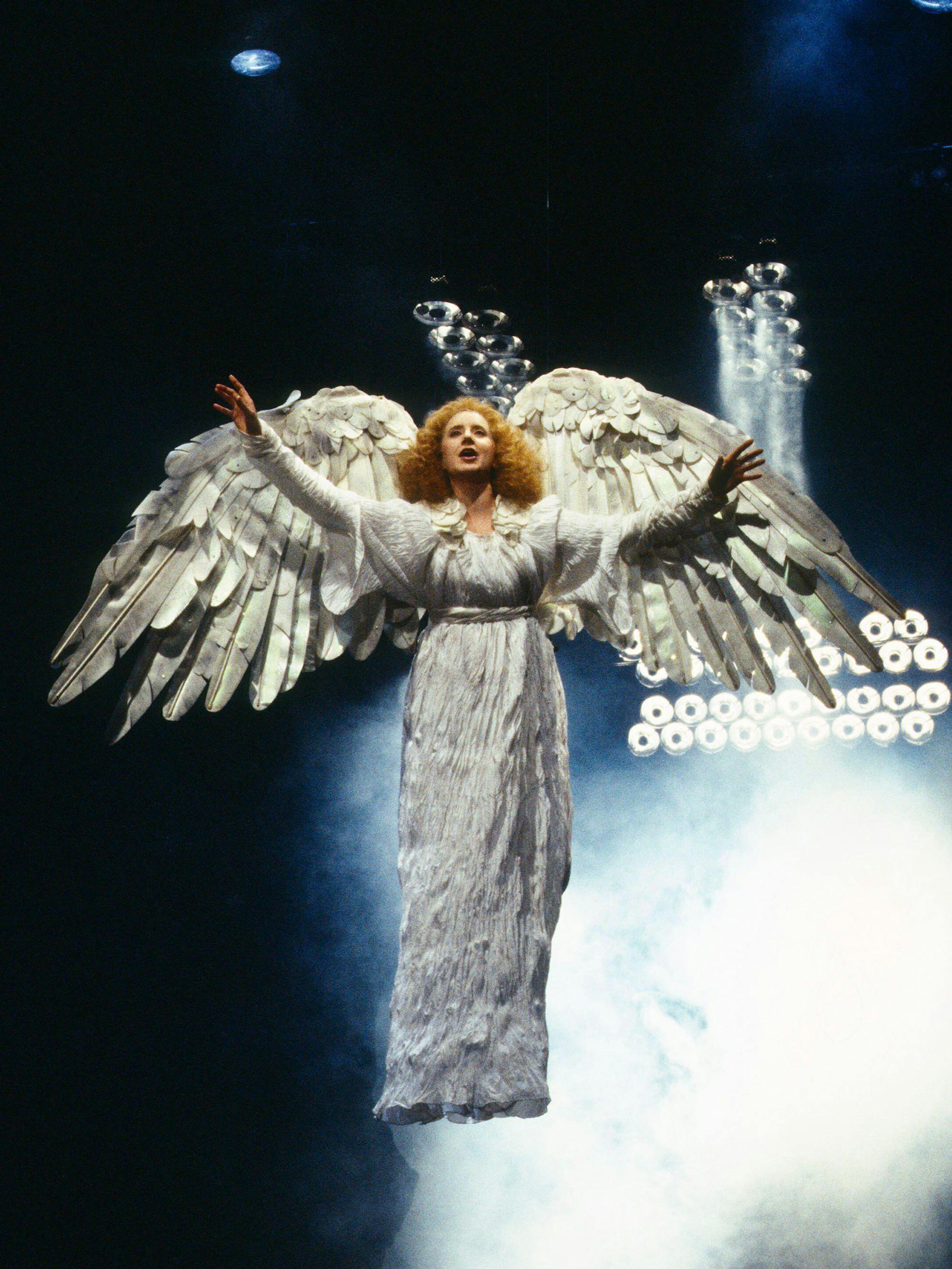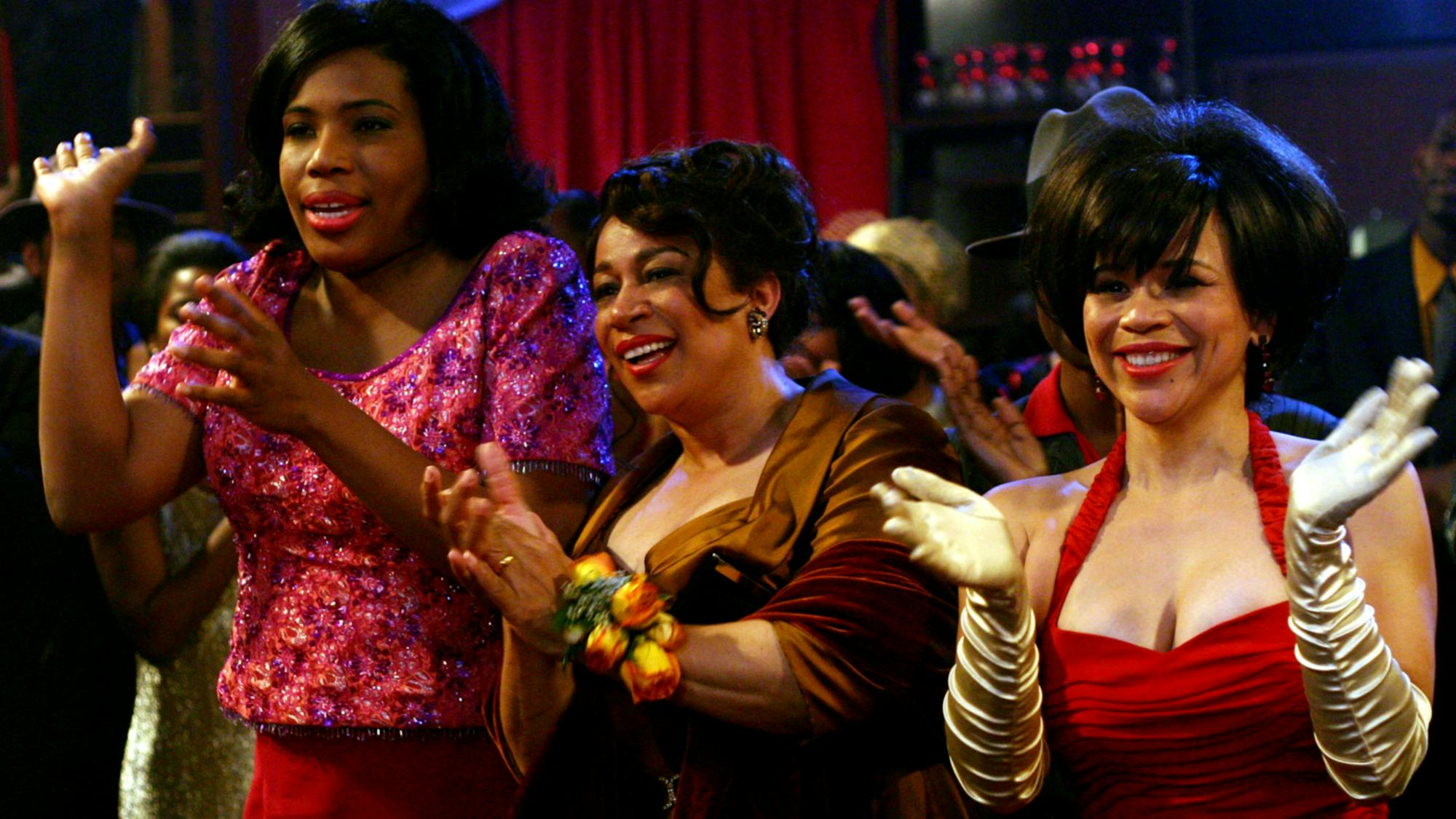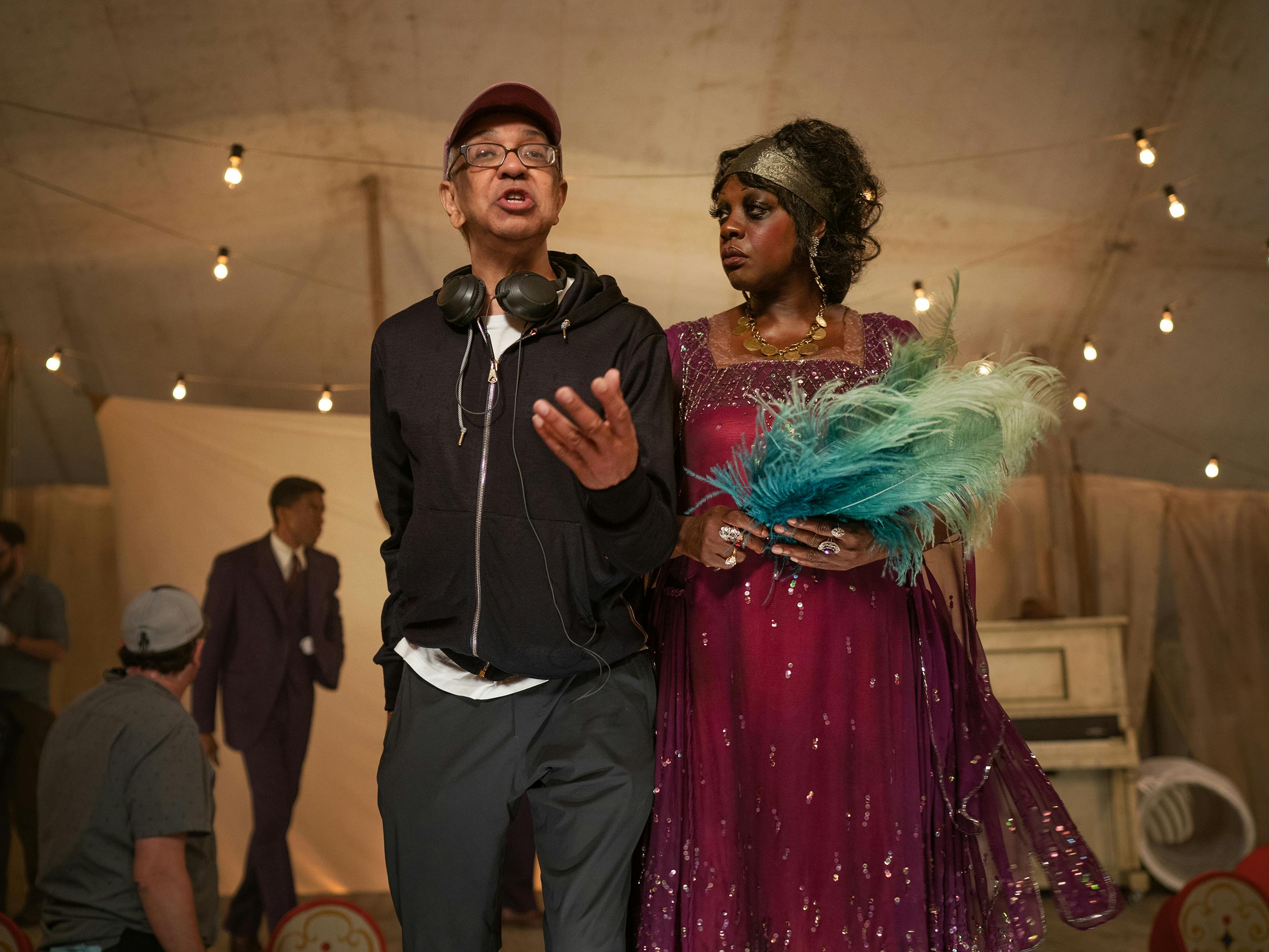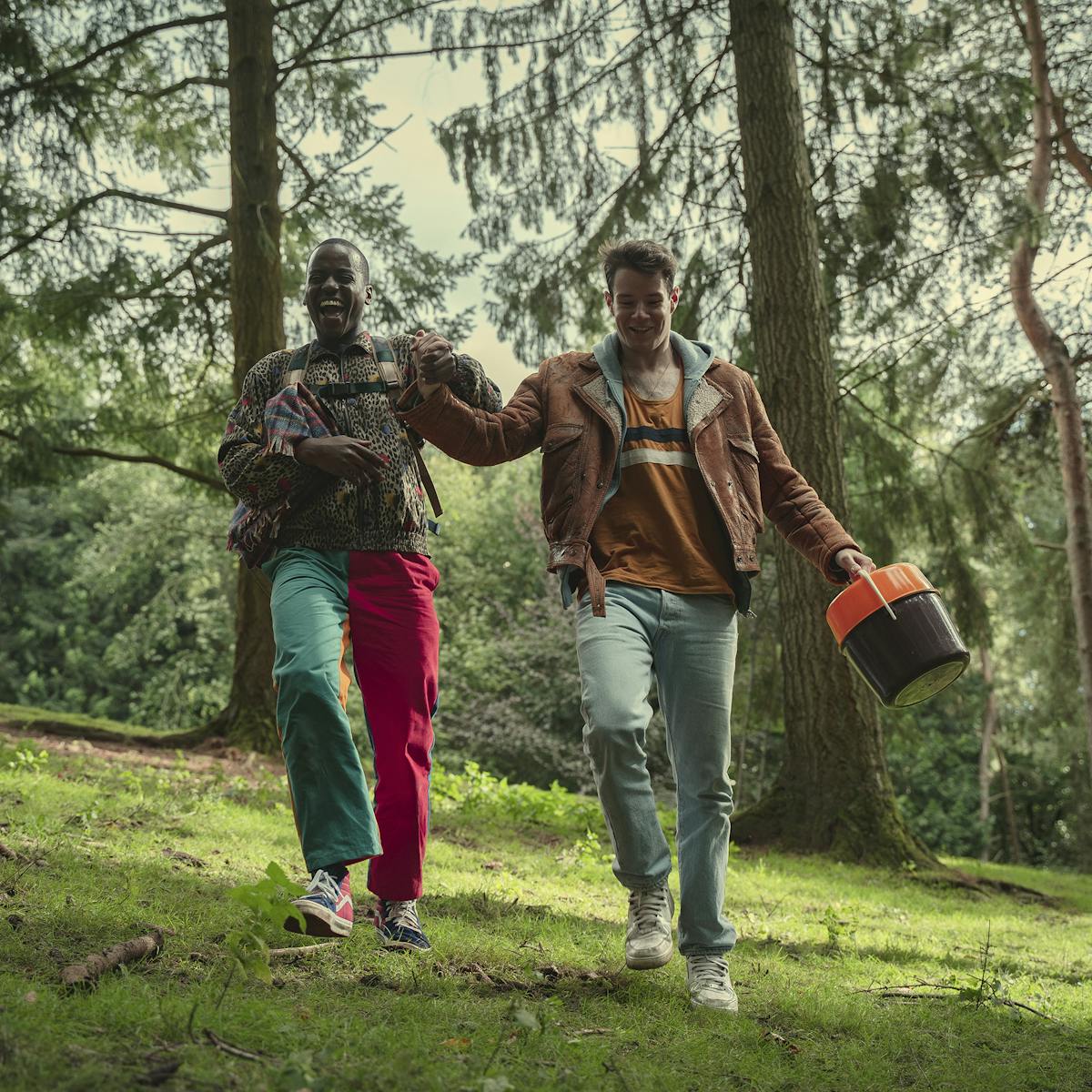When it comes to luminaries in the world of theater, few can rival the distinction of playwright and director George C. Wolfe, the Kentucky native who came to prominence in 1991 with the musical Jelly’s Last Jam. The production, about jazz musician Jelly Roll Morton, earned an impressive 11 Tony Award nominations, offering an early indication of Wolfe’s tremendous facility for finding truth and drama in the life stories of Black icons. His work since then has changed the landscapes of American theater and film and brought important, untold stories about the Black and L.G.B.T.Q.I.A.+ communities to the fore — including his direction of 1993’s Tony-winning Angels in America.
Now, with Rustin, Wolfe is tackling the remarkable story of gay civil rights icon Bayard Rustin. Written by Julian Breece and Academy Award winner Dustin Lance Black (Milk), Rustin stars Colman Domingo as the key organizer of the 1963 March on Washington for Jobs and Freedom, where Dr. Martin Luther King Jr. made his historic “I Have a Dream” speech before a crowd of around 250,000 people. “This was a man whose ferocity and sense of justice and correctness seemed to be embedded in every fiber of his being,” Wolfe says of Rustin during an appearance at the Martha’s Vineyard African American Film Festival. “History . . . it forgot him. It, in point of fact, erased him.”
Rustin’s arrival in theaters on November 3 and on Netflix on November 17 is complemented by Rustin: A Film by George C. Wolfe, which is released this fall by Assouline Publishing. The new book offers an in-depth chronicle of the making of the powerful new drama. Author Thulani Davis — a distinguished playwright, poet, screenwriter, novelist, and former Village Voice journalist — spoke to Wolfe and his collaborators about the experience of authentically representing Rustin onscreen.

Colman Domingo as Bayard Rustin behind the scenes of Rustin
Photograph by Parrish Lewis
THULANI DAVIS
The acclaimed and transformative director and playwright Wolfe has given us singularly memorable works in his esteemed career. A Directors Guild Award winner for Lackawanna Blues, Wolfe also directed the 2020 film adaptation of August Wilson’s Ma Rainey’s Black Bottom, which garnered five Academy Award nominations and two wins. Also a creative force in the world of theater, Wolfe has received 23 Tony nominations and five wins for his work on Angels in America in 1993, Bring in ’da Noise, Bring in ’da Funk in 1996, and Elaine Stritch at Liberty in 2002. In 1995, New York Landmarks Conservancy named him a “living landmark,” and in 2013 he was inducted into the American Theater Hall of Fame.
In reflecting on his memory of the period in which Rustin was helping to shape southern resistance to segregation, Wolfe described his childhood introduction to Black citizenship. “I was a very, very, young boy when all of the boycotts were happening in the 50s. Martin Luther King Jr. came to my hometown, Frankfort, Kentucky, for a march in 1964. My grandmother took me out of school, and I marched with her. All of that viscerally lives inside of my body; it’s not this alien thing. One of the things that was fascinating when I was doing research for an exhibition for the Center for Civil and Human Rights in Atlanta some years ago was realizing: Oh my God, everybody was so young. It was transformational because I remember them as adults. And it really, really informed my thinking about [Rustin] and casting the team of young people and how their open, available, smart faces became so crucial to the storytelling. And how important it is to capture that sense of being ready to take on the responsibility of helping to redefine America.

The Angel (Nancy Crane) in Perestroika, Part 2 of Tony Kushner’s Angels in America
Photograph by Donald Cooper / Alamy Stock Photo
Producer Tonia Davis says that Wolfe came to the production beyond prepared. “Not only did George C. Wolfe bring an incredible vision to the film from day one,” she says, “but he also brought his incredible team with him. Mark Ricker, our production designer, who had worked with him on Ma Rainey, came back to do another tour. The work George and Mark did together on Ma Rainey was flawless and critically acclaimed but also their working relationship was filled with trust and collaboration and a healthy amount of fun. George is a filmmaker in the truest sense of the word. He trusts his collaborators, particularly those he’s worked with before.”
“He was the right person for this story,” says producer Mark Wright. “George digs deeper than just the facts on paper, and he is such a gifted director. While watching him work with actors, you see him use that same skill with which he massaged the script and the dialogue to massage performances. Watching him push people gently and making sure that they felt safe to be vulnerable and to be themselves and to bring different parts of themselves to the role has just been magnificent. Everyone has their own style of directing — George’s is about finding, uncovering, and honoring the truth.”

Macy Gray, S. Epatha Merkerson, and Rosie Perez in Lackawanna Blues
Photograph © HBO / Courtesy of Everett Collection
“George Wolfe loves actors,” says Audra McDonald, who plays organizer Ella Baker. “He loves them, so he takes care of them. And he does that in myriad ways. He makes the space in which you’re going to be working with him a safe space. He’s there to educate them and at the same time, guide them to help them grow in the process of playing these characters. So, we understand that they have their flaws, their weaknesses, their strengths, and he lets you see all of it.”
Domingo spoke about Wolfe’s approach as a director, fondly recalling their collaboration on the
Academy Award-winning Ma Rainey. “I’d auditioned for him before but when I got the offer for Ma Rainey, I thought, George C. Wolfe cast me? And then we went on the journey of Ma Rainey. And to be honest, I didn’t know that we would become as trusting of each other. There’s such an openness with George. George is one of the smartest human beings walking this earth; he’s brilliant. And he’s got stories and ideas, and he challenges you to know something, to unknow something. He’s playing with character and story like clay, and it’s constantly evolving. He’s like, ‘Oh, let’s try that. Let’s throw that out.’ He’s always excavating. He’s taught me how to do that and reminded me that that’s part of the joy of how we create, how we dive deeper, how we let go, and liberate ourselves for the work. I’ve learned a lot with George, and I’m so grateful.”

George C. Wolfe and Viola Davis behind the scenes of Ma Rainey’s Black Bottom
Photograph by David Lee
Referring again to his experiences in Kentucky, in a community in action, Wolfe says, “It’s why I do what I do. It’s why I tell stories, be it in film or theater. It’s just a sense to craft and celebrate the collective. [It’s] what happens when passionate people come together and they’re focused on an idea. And I just love that phenomenon and I love being a part of that phenomenon.” Asked if he hopes that is what young activists of today take away from the film, Wolfe says, “Yes. It’s your country. It’s yours. And if it’s yours, you have to honor it. You have to clean it. You have to protect it. You have to do what you need to do in order to keep it alive and moving forward. It’s your responsibility. Own it and claim it. You’re smart and commanding. Take it and make it yours.”
All interviews included in this piece were completed prior to July 14, 2023.




